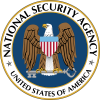Cryptography takes a quantum leap
A four-year-old start-up has begun shipments of what it says are the world's first commercial data-scrambling devices that use the radically new technology of quantum encryption.
Magiq Technologies, a privately held firm based in New York City, said this week it is selling Navajo Secure Gateway for between $50,000 and $100,000 a unit. It uses a combination of quantum cryptography and traditional cryptography to provide a virtual private network (VPN), running over fibre-optic cable, that's designed to be completely secure against all eavesdroppers.
"We're getting very strong interest from service providers, the companies who own the fibre in the ground," Magiq CEO Bob Gelfond said in an interview on Thursday. "The reason this is very attractive for them is that they're looking for ways to distinguish themselves. Security seems to be a way to do this. They feel they can add 30 or 40 percent to their top line by creating ultrasecure lines."
Quantum cryptography addresses the most worrisome aspect of current public key cryptography, which powers Web browsers, applications like Pretty Good Privacy (PGP), and workhorse protocols like SSH and SSL. For security, those applications rely on the amount of time it takes to factor large numbers used in encryption keys, a task that mathematicians strongly believe is quite difficult but have never managed to prove.









































































